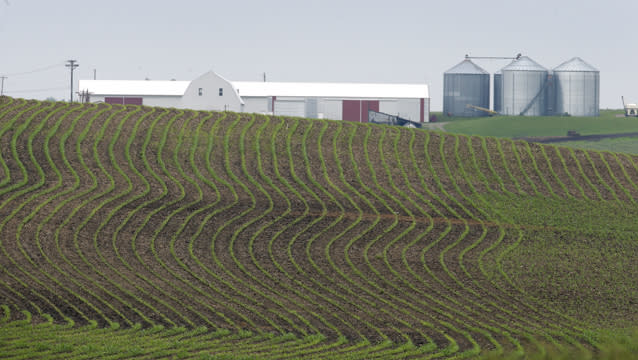Farm Bill Is Like Welfare for the Wealthy: Mark Bittman

Earlier this week the Senate passed a farm bill by a vote of 66 to 27 that would finance programs such as food stamps, foreign food aid and crop insurance.
Mark Bittman, a food writer and columnist at The New York Times and author of several books including the “How to Cook Everything” series and “VB6” argues that the farm bill has become "welfare for the wealthy” because it “famously provides subsidies for farmers who don’t need it.” In an interview with The Daily Ticker, he says: “We support big ag officially. We don’t do a whole lot to support medium and small size farms.”
Bittman describes how elected officials have offered a “bait and switch” policy to deceive the public when it comes to direct subsidy payments to farmers, a contentious part of the farm bill. Tennessee Rep. Stephen Fincher, for example, took home nearly $3.5 million in taxpayer money from 1999 to 2012 because he and his wife Lynn Fincher are each 50% partners in Stephen & Lynn Fincher Farms. Fincher “makes a lovely poster boy for a policy that steals taxpayer money from the poor and so-called middle class to pay the rich, while propping up a form of agriculture that’s unsustainable and poisonous,” Bittman writes in a June 4 column. Crop insurance will replace subsidy payments but “the premiums and deductibles are subsidized and there’s no limit to what can be paid, so bigger farms and bigger risks reap bigger rewards in the event of failure, even if that was a failure of judgment,” according to Bittman.
The Senate farm bill legislation costs roughly $955 billion over a decade. House members will vote on similar legislation by the end of the month. Speaker John Boehner said he would support the House bill, which slashes $20 billion in food stamps – officially referred to as the Supplemental Nutrition Assistance Program (SNAP) – a much deeper cut than the Senate proposal.
Related: Marion Nestle on The (Big) Business of Food Stamps: "Here's Where the Profits Come in"
The last time a farm bill passed both chambers of Congress was in 1998; lawmakers have extended current policy until Sept. 30. Federal food aid accounts for almost 80% of the overall farm bill, according to the Washington Post.
In the above interview with Aaron Task, find out why Bittman says the farm bill is a lot like crashing a car into a wall.
Tell Us What You Think!
Got a topic you’d like covered? Have a guest you’d like to see interviewed? Send an email to: thedailyticker@yahoo.com.
You can also look us up on Twitter and Facebook.